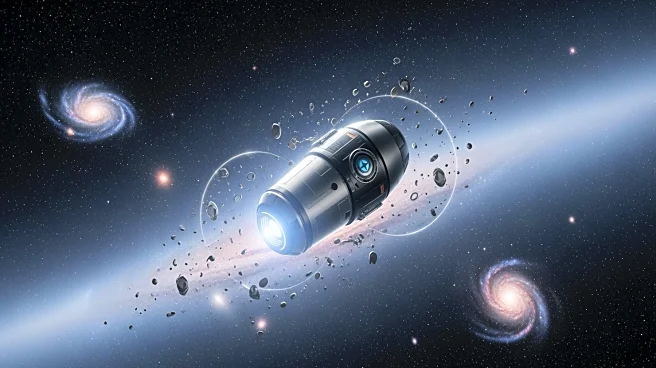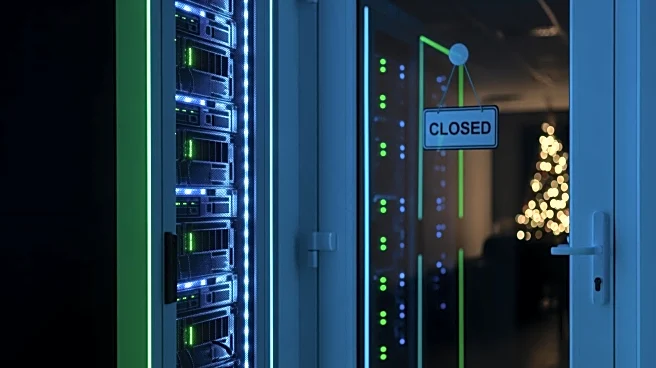What's Happening?
China has postponed the return of the Shenzhou-20 crew from the Tiangong space station following a suspected space debris strike on the spacecraft's return capsule. The crew, consisting of Commander Chen
Dong, Chen Zhongrui, and Wang Jie, remains aboard the station alongside the newly arrived Shenzhou-21 team. Engineers are conducting an impact analysis and risk assessment, with no new landing date announced. The China Manned Space Agency (CMSA) has contingency plans in place, allowing the crew to return on the Shenzhou-21 vehicle if necessary.
Why It's Important?
This delay highlights the growing risk of space debris in low-Earth orbit, which poses a threat to human spaceflight missions. The incident underscores the need for improved debris tracking and mitigation strategies to ensure the safety of astronauts and spacecraft. The postponement also reflects the operational challenges faced by space agencies in maintaining continuous human presence in orbit. The CMSA's contingency procedures demonstrate the importance of preparedness in addressing unexpected events in space exploration.
What's Next?
CMSA will continue to assess the condition of the Shenzhou-20 capsule and determine the safest course of action for the crew's return. If the capsule is deemed unsafe, the crew may return using the Shenzhou-21 vehicle, with a backup spacecraft ready for launch if needed. The agency will announce a revised landing plan once the risk assessment is complete. The incident may prompt further discussions on international cooperation in space debris management and the development of new technologies to protect spacecraft.
Beyond the Headlines
The postponement of the Shenzhou-20 return mission highlights the persistent threat of space debris, often referred to as the Kessler Syndrome, where collisions create more debris, increasing the risk of further impacts. This incident may influence future space policy and international agreements on debris mitigation. The growing number of satellites and space missions necessitates enhanced tracking systems and collaborative efforts to address the debris problem. The event also raises ethical considerations regarding the sustainability of space exploration and the preservation of orbital environments.











